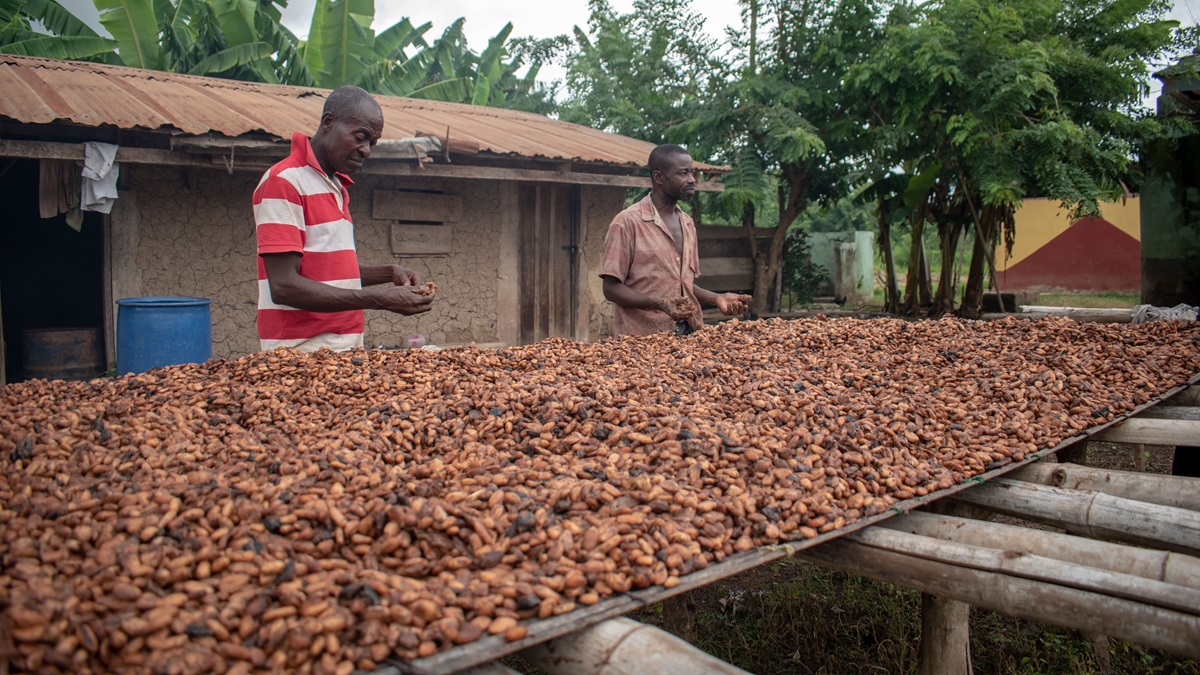Higher price tags for chocolate lovers worldwide are in part linked to a changing climate pushing up cocoa costs.
© Shutterstock/Delali Adogla-Bessa | Farmers dry cocoa beans in Kunsu, Ghana.
Cacao trees grow close to the equator and are sensitive to changes in weather.
Heatwaves and intense rains are upending harvests in West Africa, which produces three quarters of the world’s cocoa.
Cocoa prices surged 136% between July 2022 and February 2024.
Chocolate-loving consumers around the globe are being hit by higher cocoa prices due in part to the climate crisis.
Extreme weather and changing climate patterns have upended crop harvests, which are expected to fall short for the third year in a row, tightening global supplies and raising prices.
The cost of cocoa, the key ingredient for making the beloved sweets, shot up by 136% between July 2022 and February 2024, according to UNCTAD commodities price monitoring.
The price per tonne on the futures market crossed $10,000 for the first time ever on 26 March.
The hike has filtered through to consumers worldwide, already reeling under inflation and a generational cost-of-living crisis.
Intense heat and rains hit cocoa harvests in West Africa
Cacao trees grow close to the equator and are sensitive to changes in weather.
The climate phenomenon “El Niño”, characterized by warmer surface temperatures in parts of the Pacific Ocean, has caused hotter weather and shifting rainfall patterns.
In West Africa, which produces the bulk of global cocoa supplies, crops are increasingly under threat from heatwaves, intense rains and other climate-related risks. This has negatively impacted thousands of smallholder producers, who have seen their harvests diminish.
For example, excessive rainfall in Ghana and Côte d'Ivoire during the fourth quarter of 2023 have led to a flare-up of swollen shoot virus and black pod disease – a condition that causes cocoa pods to rot and harden.
The repercussions are global given that the two countries produced 58% of the world’s cocoa between 2022 and 2023.
The International Cocoa Organization expects a global shortfall of about 374,000 tonnes for the 2023-2024 season compared to 74,000 tonnes last season.
“For this reason, and in the face of short-run, price inelastic world demand for cocoa, supply-side shocks result in price spikes,” says UNCTAD senior economist Rodrigo Carcamo.
Renewed urgency to rein in the climate crisis
The cocoa price hike is just one example of how climate change has far-reaching impacts on society and the economy.
“It shows the importance for all consumers around the world that climate change is tackled, and that climate targets and climate change mitigation measures like nationally determined contributions are met,” Mr. Carcamo says.

